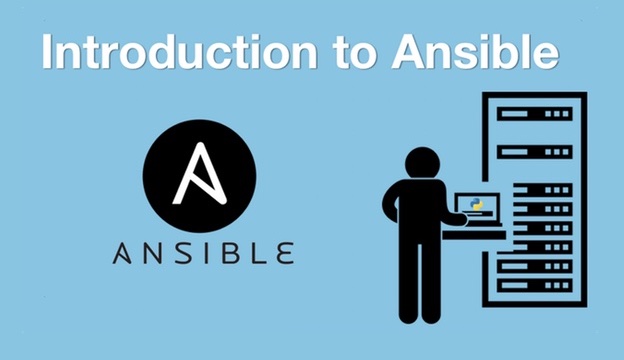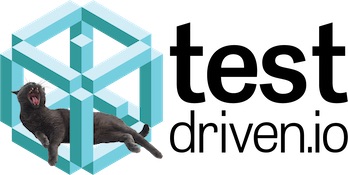Best Python Resources
The Python community is amazing at sharing detailed resources and helping beginners learn to program with the language. There are so many resources out there though that it can be difficult to know how to find them.
This page aggregates the best general Python resources with descriptions of what they provide to readers.
New to programming
If you're learning your first programming language these books were written with you in mind. Developers learning Python as a second or later language should skip down to the next section for "experienced developers".
-
Automate the Boring Stuff with Python is an incredible book for both non-developers and professional developers alike. Each chapter walks through a situation that can be automated using Python such as manipulating images, organizing your files and programmatically controlling your mouse and keyboard to handle any sort of tasks.
-
CS for All is an open book by professors at Harvey Mudd College which teaches the fundamentals of computer science using Python. It's an accessible read and perfect for programming beginners.
-
If you've never programmed before check out the Getting Started page on Learn To Code with Me by Laurence Bradford. She's done an incredible job of breaking down the steps beginners should take when they're uncertain about where to begin.
-
This short 5 minute video explains why it's better to think of projects you'd like to build and problems you want to solve with programming. Start working on those projects and problems rather than jumping into a specific language that's recommended to you by a friend.
-
A Python Crash Course gives an awesome overview of the history of Python, what drives the programming community and dives into example code. You will likely need to read this in combination with other resources to really let the syntax sink in, but it's a great article to read several times over as you continue to learn.
-
The Python projects tag on the Twilio blog is constantly updated with fun tutorials you can build to learn Python, such as the International Space Station Tracker with Flask and Redis-Queue, Choose Your Own Adventures Presentations using Flask and WebSockets and Martianify Photos with OpenCV.
-
A Byte of Python is a beginner's tutorial for the Python language.
-
Introduction to Programming with Python goes over the basic syntax and control structures in Python. The free book has numerous code examples to go along with each topic.
-
Google put together a great compilation of materials and subjects you should read and learn from if you want to be a professional programmer. Those resources are useful not only for Python beginners but any developer who wants to have a strong professional career in software.
-
The O'Reilly book Think Python: How to Think Like a Computer Scientist is available in HTML form for free on the web.
-
Python Practice Book is a book of Python exercises to help you learn the basic language syntax.
-
Looking for ideas about what projects to use to learn to code? Check out this list of 5 programming projects for Python beginners.
-
There's a Udacity course by one of the creators of Reddit that shows how to use Python to build a blog. It's a great introduction to web development concepts through coding.
-
I wrote a quick blog post on learning Python that non-technical folks trying to learn to program may find useful.
-
Python for you and me is an approachable book with sections for Python syntax and the major language constructs. The book also contains a short guide at the end to get programmers to write their first Flask web application.
Python for specific occupations
Python is powerful for many professions. If you're seeking to use Python in a specific field, one of these guides may be the most appropriate for you.
-
Python for Social Scientists contains a textbook, course outline and slides for a college course that taught social scientists to use Python for their profession.
-
Practical Business Python is a blog that covers topics such as how to automate generating large Excel spreadsheets or perform analysis when your data is locked in Microsoft Office files.
-
Python for the Humanities is a textbook and course on the basics of Python and text processing. Note if you've never worked with Python before the material ramps up quickly after the first chapter so you will likely want to combine it with some other introduction to Python resources.
-
Practical Python for Astronomers provides open source workshop materials for teaching students studying astronomy to use Python for data analysis.
Experienced developers new to Python
If you can already program in another language, these resources are better for getting up to speed because they are more concise when explaining introductory topics.
-
Learn Python in y minutes provides a whirlwind tour of the Python language. The guide is especially useful if you're coming in with previous software development experience and want to quickly grasp how the language is structured.
-
Microservices with Docker, Flask, and React is a great tutorial for digging in deeper with common Python tools such as Flask, Docker, React and microservices.
-
Developers familiar with other languages often have difficulty adapting to accepted Python code style. Make sure to read the PEP8 code style guidelines as well as The Elements of Python Style to know the Python community standards.
-
Essential Reads for Any Python Programmer is a great collection of advice for developers coming to Python from another programming language ecosystem such as Java.
-
How to Develop Quality Python Code is a good read to begin learning about development environments, application dependencies and project structure.
-
The Python module of the week chapters are a good way to get up to speed with the standard library. Doug Hellmann is also now updating the list for changes brought about from the upgrade to Python 3 from 2.x.
-
Kenneth Reitz's The Hitchhiker’s Guide to Python contains a wealth of information both on the Python programming language and the community.
-
Composing Programs shows how to build compilers with Python 3, which is a good undertaking if you're looking to learn both more about the Python language and how compiles work.
-
free-for-dev is not specific to Python but it's a fantastic list of free tier resources for experienced developers. The list is especially handy if you want to try building a Python project and need new third party services to kick around while experimenting.
Videos, screencasts and presentations
Videos from conferences and meetups along with screencasts are listed on the best Python videos page.
Curated Python packages lists
-
awesome-python is an incredible list of Python frameworks, libraries and software. I wish I had this page when I was just getting started.
-
easy-python is like awesome-python although instead of just a Git repository this site is in the Read the Docs format.
-
Hacker News Tools of the Trade is not specific to Python but almost all of the tools and services are useful to building software projects.
Podcasts
Take a look at the best Python podcasts section for a curated list of both Python-specific and general software development podcasts.
Newsletters
Python's active community constantly publishes new tutorials and walkthroughs. It is easier to keep up if you follow along by subscribing to several email newsletters that round up and curate the best new resources. I subscribe to all of the following newsletters and find that each one has its own unique take on what resources are most important to send out to the community.
-
Python Weekly is a free weekly roundup of the latest Python articles, videos, projects and upcoming events.
-
The Full Stack Python monthly newsletter is a monthly newsletter that focuses on a single topic each month. For example, one month will aggregate great Flask resources, while another month will provide WSGI server configurations.
-
The Python Tricks newsletter contains code snippets and stories every few days to teach you new ways to code Python.
-
Awesome Python Newsletter provides another solid selection of new and existing tutorials along with an extensive issues archive with previous links to resources.
-
Import Python is a newer newsletter than Python Weekly and PyCoder's Weekly. So far I've found this newsletter often pulls from different sources than the other two. It's well worth subscribing to all three so you don't miss anything.
-
PyCoder's Weekly is another great free weekly email newsletter similar to Python Weekly. The best resources are generally covered in both newsletters but they often cover different articles and projects from around the web.
这些资源应该可以帮助您入门。下一步是什么?
Sponsored By

Fix errors in your Python code before your users see them by monitoring with Rollbar.
Learn More Python

Deploy web apps with the Ansible configuration management tool.

Build microservices with Docker, Flask & React in this great course.
Full Stack Python
Updates via newsletter, Twitter & Facebook.
